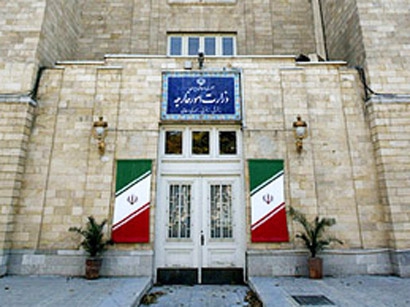
Iran's Deputy Foreign Minister Mohammad Mehdi Akhondzadeh said Friday that Tehran attached great importance to multilateral cooperation among regional states as an important means for their growth and development, IRNA reported.
He made the remarks addressing the 12th session of Indian Ocean Rim Association for Regional Co-operation (IOR-ARC) Council of Ministers (COM) meeting, kicked off Friday in Gurgaon located in National Capital Region.
"IOR-ARC could play a unique role in further development of the region in different matters pertaining to 6 priority areas designated by Council of Ministers," Akhonzadeh said.
He said that the subsidiary bodies of the Association including the Working Group on Trade and Investment (WGTI), Business Forum (IORBF), and Academic Group (IORAG) played an important role in progress of the regioinal countries.
"Iran believes designing joint projects, co-funding for projects and due attention to less developed countries and projects which merely target Association priorities areas are of vital importance," noted the Iranian official.
He underlined that there were more rooms for the Association in international arena, especially cooperation with the United Nations and intergovernmental bodies in the region and beyond.
To this end, Akhondzadeh added that Iran would support obtaining observer status with the UN General Assembly which first of all promotes international recognition of the Association and secondly, would be a base for substantive engagement and to utilize deliberations and consultations in these bodies.
Highlighting the common problems of the regional countries, Akhondzadeh said: "A majority of countries in our region are still confronted by numerous shared and common problems and great challenges such as extreme poverty, global food crisis and continued food insecurity, high level of unemployment, external debt burden, and lack of financial aid and climate change negative effects".
He believed that countries of the region should work on a vigorous, coordinated and comprehensive global response to these challenges, and to undertake immediate actions and initiatives to overcome these challenges.
"There is a need to shape a comprehensive plan of action with a focus on eradicating poverty, and deployment and transfer of advanced technologies," emphasized the Iranian official.
Criticising the unilateral sanctions against Iran, Akhondzadeh maintained that the member states of the Association should be cognizant of the fact that Coercive economic measures, including unilateral sanctions, against countries of the region violated and undermined international law and severely threatened freedom of trade and investment.
Extending gratitude to the Government of India for hosting the meeting, Mohammad Mehdi Akhondzadeh expressed his confidence that this Council of Ministers Meeting will certainly contribute to the efforts aimed at expanding regional cooperation and to the promotion and enhancement of our Association.
This is the Second Council of Ministers Meeting of IOR-ARC under India's Chairmanship that would provide an opportunity to take stock of the progress that the Association has made since the meeting in Bengaluru, and explore future directions and initiatives that can serve the common interests of the group.
The 12th IOR-ARC meeting kicked off on Monday, 29th October, with the Academic Group meeting (IORAG) on Tuesday, 30th October, the Working Group on Trade and Industry (IOR-WGTI) deliberated issues of trade facilitation and so on.
The Indian Ocean Rim Business Forum (IORBF) meeting was held on 31st October.
In addition to Iran, 100 delegates including foreign ministers, ambassadors and media representatives from member countries took part in the meeting.
The 19 member states of the IOR-ARC association are Iran, Australia, Bangladesh, India, Indonesia, Kenya, Madagascar, Malaysia, Mauritius, Mozambique, Oman, Seychelles, Singapore, South Africa, Sri Lanka, Tanzania, Thailand, United Arab Emirates and Yemen.
The Association also has 5 dialogue partners including China, Egypt, France, Japan, United Kingdom, while the Indian Ocean Tourism Organisation and the Indian Ocean Research Group are observers.
The Iran Project is not responsible for the content of quoted articles.











